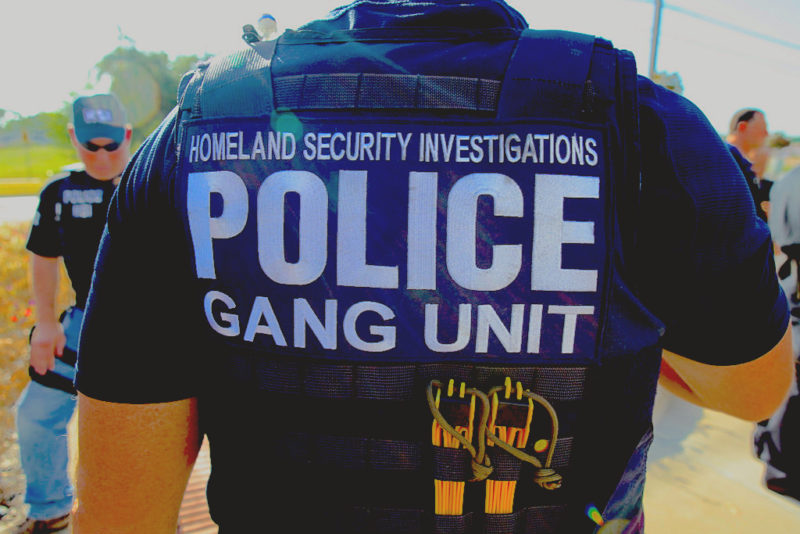
There are many advantages to getting an accelerated homeland security degree. The biggest draw, of course, is the potential to dive into a career more quickly than one would be able to do with a regular degree. The accelerated option helps people gain the relevant skills fast, which means that they can go straight into the job search right away. This is especially enticing to those who want a homeland security job because the federal job application process can take a long time. Any opportunity to save some time is valuable.
For some, an accelerated degree works best for their current situation and lifestyle. They may have a limited amount of time between jobs, they may just learn best in a fast-paced environment. An accelerated homeland security degree will give you the same education that you’d get from a degree at a regular pace. In other words, you’ll take the same amount of classes, but you’ll spend more time on those classes within a shorter frame. As a result, accelerated degrees are challenging, especially when it comes to a career as important and analytical as homeland security.
Methodology: How We Ranked the Best Accelerated Homeland Security Programs
For students who want to earn their degree fast, Bachelor’s Degree Center editors have ranked the fastest accredited, reputable programs in the US. In addition to focusing on programs that offer students an accelerated option, we ranked programs according to Alumni Salary, Cost, and Reputation, using data from IPEDS, College Scorecard, and Niche.
1. Western Carolina University

Western Carolina University offers an online BS in Emergency and Disaster Management that is recognized as one of the country’s best accelerated homeland security degree. Students enrolled in WCU’s accelerated homeland security degree program must complete 42 hours of liberal arts studies, 48 hours dedicated to one’s major, plus 30 elective hours and an internship that earns up to 12 academic credit hours. Students graduate and find rewarding careers in the DHS, FEMA, the HHS, or other governmental agencies.
Western Carolina University was established in 1889. Western Carolina University is a member school of the University of North Carolina System. The school’s rural valley campus covers more than 575 acres and serves more than 11,500 students. Highlight — Western Carolina University is one of a trio of schools chosen to be a member school of the North Carolina Promise Tuition Plan, a plan to make school more affordable.
Degree: Emergency and Disaster Management, BS
2. American Military University

The American Military University’s School of Security and Global Studies offers a Bachelor of Arts (BA) degree program in Homeland Security that can be completed entirely online. The American Military University’s accelerated homeland security degree program requires degree candidates to complete 120 credit units to graduate, which includes the completion of the homeland security senior seminar. Curriculum for AMU’s online homeland security program includes studies in risk management, ethics, border security, national security, and intelligence, among others. Classes are offered in two-month formats and begin each month on a rolling admission schedule.
The American Military University is a for-profit, distance learning institution of higher education that was established in 1991. The American Military University, along with American Public Education, Inc., comprise the American Public University System (APUS), a publicly-traded company. Highlight – AMU is not affiliated with the US military but serves more than 46,000 online students.
Degree: Homeland Security, BA
American Military University Homeland Security, BA
3. Columbia College

Columbia College offers an online BA in Disaster and Emergency Management that does not require any trips to campus. Students enrolled in Columbia College’s accelerated homeland security degree program requires the completion of 120 credit hours through the school’s distance learning platform. The school offers a rolling admission, which allows students to begin their degree program about every six weeks because classes are delivered in a five-week format. Students applying for the homeland security program at Columbia College can transfer up to 90 credit units, per school policy.
Columbia College is a women’s school that is affiliated with the United Methodist Church. The school was founded in 1854 as the Columbia Female College. The school’s campus in Columbia, SC, is home to approximately 1,100 students. Highlight — Columbia College holds the distinction of being one of the oldest women’s institution of higher education in the nation.
Degree: Disaster and Emergency Management, BA
Columbia College BA in Disaster and Emergency Management
4. Columbia Southern University

Columbia Southern University offers an all distance learning BS in Homeland Security that students can begin at any time that works for them. CSU’s accelerated homeland security degree program requires the completion of 120 credit hours, of which up to 90 credit units can be transferred to Columbia Southern University. Coursework for CSU’s homeland security degree includes border management, cybercrime, disaster resilience, and counterterrorism, plus a senior culminating capstone project, to name a few. Columbia Southern University is recognized among the most affordable online schools in the nation.
Columbia Southern University is a private school that is family-owned. Columbia Southern University was established as an online for-profit school in 1993. The school serves more than 21,000 students, of which nearly 6,000 are students studying for graduate degrees. Highlight — Columbia Southern University initially offered one degree in Environmental Engineering and Occupation Safety & Health.
Degree: Homeland Security, BS
Columbia Southern University BS in Homeland Security
5. Eastern Kentucky University

Eastern Kentucky University offers a BS in Homeland Security, which can be completed entirely online, without campus visits required. Degree candidates graduate and find rewarding careers as a border patrol agent, air marshal, FBI agent, infrastructure agent, customs agent, or intelligence analyst, among others. EKU’s accelerated homeland security degree program requires the completion of 120 credit units, which can include up to 90 credit units transferred from other accredited institutions of higher education. Those on active military duty receive a substantial tuition discount per unit. Students study the intelligence, security operations, and disaster management, the pillars of homeland security.
Eastern Kentucky University was established as a public institution of higher learning in 1874. The school operates satellite campuses in Lancaster, Manchester, Corbin, and Hazard, KY. Eastern Kentucky University’s campus serves about 16,000 students. Highlight — Eastern Kentucky University is tied for the 28th spot among the best southern regional universities, according to US News.
Degree: Homeland Security, BS
Eastern Kentucky University BS in Homeland Security
6. Excelsior College

Excelsior College offers an all-online BS in National Security that prepares students for rewarding work in diplomacy, international policy, foreign relations, or homeland security, among others. Excelsior College’s accelerated homeland security degree program has been specially developed with veterans and active military members in mind. The school allows for up to 113 credit units and permits the granting of credit for military service. Excelsior College provides students with two concentrations within the homeland security degree, Topics in National Security or Intelligence & Security Analysis.
Excelsior College is a school that was established in 1971 by the NYS Regent’s Board that was initially named Regents College. Excelsior College is organized by three schools – the undergraduate, the graduate, and the nursing schools. Highlight — Excelsior College was developed to serve the more non-traditional, working learner students.
Degree: National Security, BS
Excelsior College BS in National Security
7. Grand Canyon University

Grand Canyon University’s Colangelo College of Business offers a Bachelor of Science (BS) degree program in Homeland Security & Emergency Management that can be finished entirely through the school’s distance learning platform. Students enrolled in GCU’s accelerated homeland security degree program must complete 120 credit units to graduate; however, up to 84 lower division credits (and 90 total credits) can be transferred towards GCU’s homeland security degree. Students graduate with skills required to manage and budget for resources, apply critical thinking in emergency situations, community engagement, terrorism prevention, and emergency management preparedness.
Grand Canyon University is a for-profit institution of higher education that was founded in 1949. The school maintains a Christian affiliation, although it is non-denominational. Grand Canyon University’s total student enrollment exceeds 90,000, of which 70,000 students are studying online. Highlight — Grand Canyon University is the largest Christian university across the globe.
Degree: Homeland Security, BS
Grand Canyon University Homeland Security, BS
8. New England College

New England College offers an accelerated homeland security degree program that can be completed entirely online. The curriculum for New England College’s Bachelor of Arts (BA) in Homeland Security and Emergency Preparedness degree program includes Crisis Communications, Emergency Planning, Global Security, Cyber Warfare, plus a senior thesis project. New England College is recognized by several oversight organizations as a military-friendly institution of higher education and a member school of the Yellow Ribbon Program dedicated to educating those who serve their country. Degree candidates must complete 120 credit units to graduate, of which 40 credit units must be devoted to the homeland security major degree program.
New England College was founded in 1946 as a nonprofit, private school. The school’s rural campus serves more than 2,600 undergraduate and graduate students and about 90 miles from downtown Boston. Highlight — New England College was initially founded to help meet the needs of students on the G.I Bill returning from World War II.
Degree: Homeland Security and Emergency Preparedness, BA
New England College Homeland Security and Emergency Preparedness, BA
9. University of Maryland Global Campus

The University of Maryland Global Campus offers a BS in Homeland Security that can be finished online. Degree candidates enrolled in UMGC’s accelerated homeland security degree program permitted to transfer up to 90 credits but must complete 120 credit units to graduate. The curriculum for UMGC’s online homeland security degree includes Legal Issues in Homeland Security, Public Safety Technology and Research, Strategic Planning, International Relations, and Public Safety Leadership, to name a few.
The University of Maryland — Global Campus was established in 1947. The school offers programs throughout Maryland and in the Baltimore-DC area. The University of Maryland — Global Campus serves more than 90,000 students across the globe. Highlight – UMGC is recognized among the largest online institution of higher learning in the world.
Degree: Homeland Security, BS
University of Maryland Global Campus BS in Homeland Security
10. Waldorf University

Waldorf University offers a Bachelor of Applied Science (BAS) in Homeland Security that is recognized among the country’s finest accelerated homeland security degree program that can be completed entirely online. Coursework for Waldorf University’s homeland security degree includes Terrorism Response, Disaster Planning, Infrastructure Protection, Weapons of Mass Destruction, plus a senior capstone project related to the field of homeland security. Waldorf University’s homeland security degree offers students two concentrations in Emergency Management or Criminal Justice. Degree candidates must complete 120 credit units to graduate from Waldorf University’s BAS degree program in homeland security.
Waldorf University was established in 1903. The school began with an affiliation with the Evangelical Lutheran Church but now operates as a for-profit institution of higher learning. The school serves about 2,400 students. Waldorf University offers students the four pillars of secondary education experience – tradition, passion, success, and community. Highlight — Waldorf University offers associate, bachelor’s, and master’s degree programs.
Degree: Homeland Security, BAS
Waldorf University BAS in Homeland Security
What if I Don’t Need a Full Bachelor’s Degree?
While many homeland security jobs do require a full bachelor’s degree, not all of them do. You may be seeking a career in homeland security that doesn’t require a degree, or maybe you’d like to start working quickly and get a full degree later. In any case, you do have options. Chief among them is the online homeland security certificate. A certificate will require a lot of the same classes that one would get with a full bachelor’s degree. However, certificates don’t take as much time to earn as a bachelor’s degree. In fact, some certificates can be earned in a matter of months. Certificates require fewer courses, and students don’t have to take general education courses with a certificate.
For some getting an online homeland security certificate is preferable to earning an accelerated degree. One can earn their degree just as quickly, but they don’t have to cram as many courses into the same amount of time. They’ll save some money as well, and if they choose to pursue a bachelor’s degree later, they’ll be able to apply a lot of their certificate knowledge to their degree.
The drawback, of course, is the fact that a homeland security certificate salary will be lower, on average, than a homeland security bachelor’s degree salary. The higher-paying homeland security jobs do require a full degree. However, for those who want to get started in their careers quickly and maybe earn a bachelor’s degree after saving some money, a certificate can be a great choice.
There are a lot of sides to homeland security, and not all of them are part of the U.S. Department of Homeland Security. Homeland security professionals work in:
- intelligence gathering
- emergency response
- risk mitigation
- information systems
- information security
- transportation security
- law enforcement
- cybersecurity
Homeland security and emergency management has many facets. It’s not just government agencies. Even private sectors take part. Domestic terrorism and terrorist attacks on critical infrastructure, natural disasters, and other public safety threats come under the umbrella. Security studies, information technology, and more take part in the security field. Real-world decision-making skills are critical.
If you’re trying to decide between a certificate and a full bachelor’s degree, take some time to weigh your pros and cons. Active duty military personnel, for instance, may choose a certificate and get an online bachelor’s degree in a homeland security concentration later. Decide what matters the most to you, and move forward from there.
If you are interested in getting a homeland security degree online, make sure you know what you’re getting. Is financial aid available? Will they allow you to transfer credits? Can you study full-time or part-time? Do they have accreditation? Your career goals depend on a specific specialization, make sure that specialization is offered. The fundamentals, like social science, are critical for a good bachelor’s degree program.
If you’re trying to decide between a certificate and a full bachelor’s degree, take some time to weigh your pros and cons. Decide what matters the most to you, and move forward from there.
Do I Need a Security Background Check to Get a Homeland Security Degree?
To get a job in homeland security, you will definitely need a homeland security background check. This homeland security background check can take as few as two weeks or as long as several years. However, on average, the security check will take a few months. Before this background check is complete, you may receive a tentative job offer. Assuming that the DHS doesn’t find any homeland security background check disqualifications, you can then move forward into your career.
How Do I Get a Job in Homeland Security?
The best way to get a job in homeland security is to start with your education. Whether that involves a bachelor’s degree or a certificate is up to you, but it’s important that you always look for accredited programs. You might look for a specific homeland security degree, but other applicable degrees include sociology and criminal justice. Homeland security education requirements vary, but getting a degree or a certificate is the best way to obtain the training that you need.
From there, it’s time to look for entry-level homeland security jobs. You can find these entry-level homeland security jobs by looking through US government job websites. Start by looking at the different organizations within the DHS. You can find them all listed on the DHS website. From there, you can tailor your search based on the specific organization that you’re interested in. Each one has a page for job seekers.
Finally, some employers are quite impressed with accelerated degree earners. As stated above, getting an accelerated degree is challenging. It requires a lot of focus and dedication, not to mention hard work. When a person earns an accelerated degree, that person proves that they can meet deadlines, handle high-pressure situations, and learn new information quickly. All of these traits are especially important when it comes to homeland security.
Related Rankings:
25 Best Bachelor’s in Homeland Security
